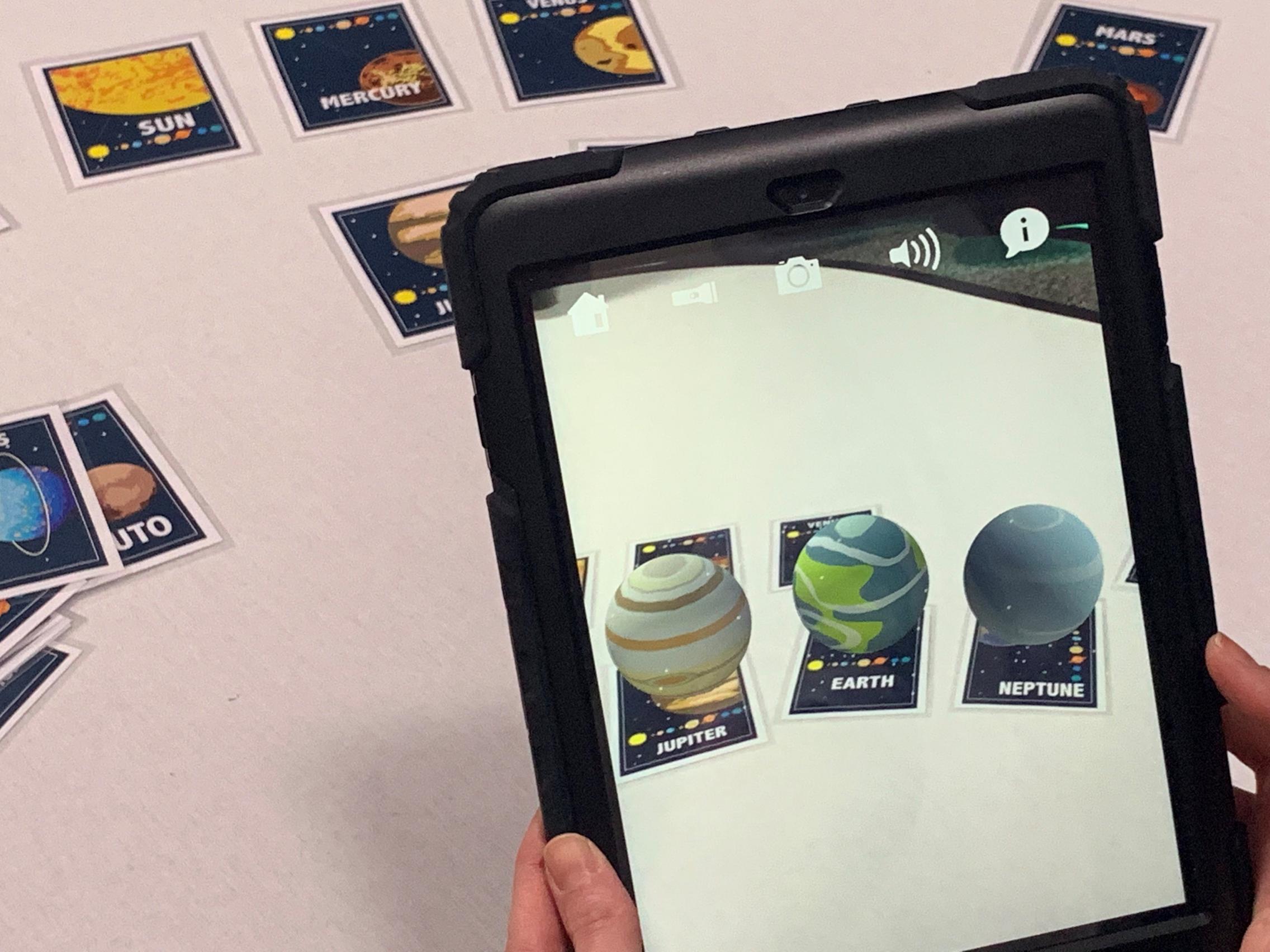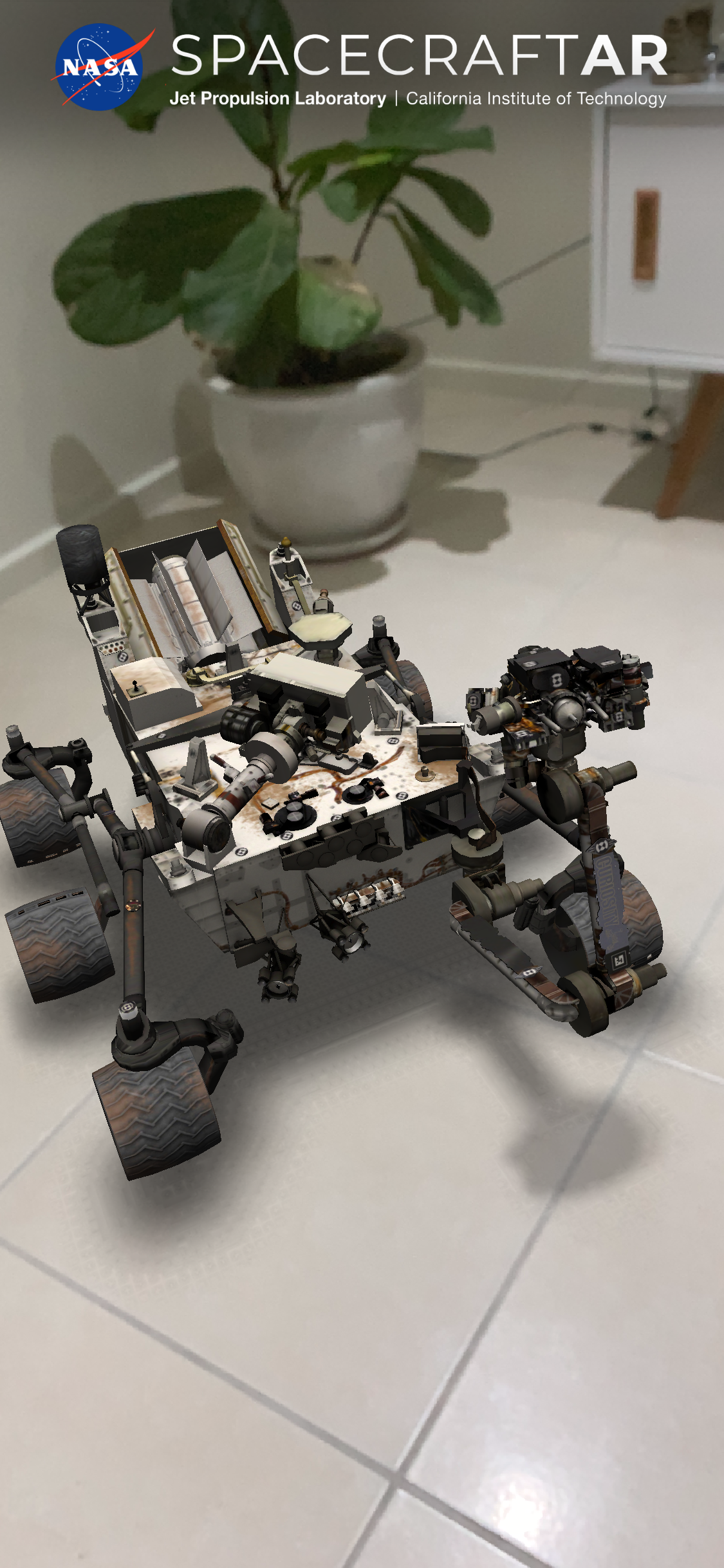Try these Augmented Reality Activities for Space Week
In this post we share some Augmented Reality (AR) learning activities that you can implement in your classroom for Space Week!

With an increased universal investment in space exploration the future will require professionals working on all aspects of space exploration, including geologists, data scientists, engineers to computer scientists. We can start early by inspiring the next generation of space professionals by sparking students' curiosity about space in the classroom. There are a number of free resources that can be used to engage, inspire and provoke curiosity about space exploration that will feature in our new AR and VR Lending Library Kits that we would like share with you below. All you need for these lessons is access to a tablet device. If you don't have one available, you could still take some of the same ideas and run them without the AR component!
Aligning the Planets
We love free online resources and we have discovered these printable AR Space Flash Cards that are excellent for exploring the planets in the Solar System. These cars work with the free version of the AR Flashcards App (available on Android and iOS). We propose printing them off and having students work in teams to place the planets in the correct order of what they think is the correct sequence (without looking online!). From here, students take a screen capture of their proposed sequence and compare them with the other groups. Students have a chance to update their Solar System before finding out the final result.
Following this activity, students can learn how they can build their own AR Solar System with the free AR Makr App (available on iOS or a similar App). Students create new objects and use the Sphere template to create their individual planet objects. They can then position this in the real world and take a photo of themselves standing amongst the planets!
Engineering the next Rover
The Mars Rover is designed in a way that to keep it alive and explore Mars. It has carefully designed parts that are similar to most living creatures. In this activity, students think about the components of a Rover that keep it alive and enable it to carry out exploration tasks. For example, what parts help the robot move, listen, pick-up objects, communicate and see?
Starting this lesson, students brainstorm all the parts and functions they think a Rover needs to succeed in its mission on Mars with justification. The class share their initial ideas with one another, comparing similarities and differences. Following this, students research the Mars Rover, collecting information about the features and design. Students then dive into an AR experience and spend time exploring the different Rovers on the AR Spacecraft App (available on Android or iOS). Students select one of the Rovers and take a photo of it, they print or import it into a digital document to label all of the parts and functions that they have learned the Rover has.
Students then pick a planet to research (e.g. in terms of environment, terrain and weather) and design a Rover that they believe would survive exploration. Students either draw their Rover or construct it with craft/recyclable materials. With their creation, they provide information about the features and functions and how it supports space exploration activities and survival -- including the name! Students talk about how it is similar or different to the Mars Rover based on environmental conditions and mission goals. Students can then pitch their final designs to the rest of the class. Who's Rover will survive and why?!

Hold the Solar System in your hand
Hold the Solar System in the palm of your hand using AR technology such as the MERGE cube. The Galactic Explorer app allows you to twist, turn, zoom, question and learn about the Solar System. The Merge Cube app projects an image by recognising the QR-like codes on the face of the MERGE Cube. Students can peer through the screen on their device to see the Cube come to life. If you don't have a Cube yet, MERGE has made these available as a PDF to download.
Ready, set, launch!
We hope you enjoy a wonderful Space Week! We'd love to hear the activities you are running in the classroom for Space Week by tweeting at us on Twitter!
If you enjoyed these learning activities sign up to our eNewsletter to learn more about updates and free Digital Technologies resources. If you liked these activities and are interested be sure to check out our free Lending Library and supporting lesson plan resources and register your interest!
